Effective Java Review (90 Part Series)
1 Effective Java Tuesday! Let’s Consider Static Factory Methods
2 Effective Java Tuesday! The Builder Pattern!
… 86 more parts…
3 Effective Java Tuesday! Singletons!
4 Effective Java Tuesday! Utility Classes!
5 Effective Java Tuesday! Prefer Dependency Injection!
6 Effective Java Tuesday! Avoid Creating Unnecessary Objects!
7 Effective Java Tuesday! Don’t Leak Object References!
8 Effective Java Tuesday! Avoid Finalizers and Cleaners!
9 Effective Java Tuesday! Prefer try-with-resources
10 Effective Java Tuesday! Obey the `equals` contract
11 Effective Java Tuesday! Obey the `hashCode` contract
12 Effective Java Tuesday! Override `toString`
13 Effective Java Tuesday! Override `clone` judiciously
14 Effective Java Tuesday! Consider Implementing `Comparable`
15 Effective Java Tuesday! Minimize the Accessibility of Classes and Member
16 Effective Java Tuesday! In Public Classes, Use Accessors, Not Public Fields
17 Effective Java Tuesday! Minimize Mutability
18 Effective Java Tuesday! Favor Composition Over Inheritance
19 Effective Java Tuesday! Design and Document Classes for Inheritance or Else Prohibit It.
20 Effective Java Tuesday! Prefer Interfaces to Abstract Classes
21 Effective Java! Design Interfaces for Posterity
22 Effective Java! Use Interfaces Only to Define Types
23 Effective Java! Prefer Class Hierarchies to Tagged Classes
24 Effective Java! Favor Static Members Classes over Non-Static
25 Effective Java! Limit Source Files to a Single Top-Level Class
26 Effective Java! Don’t Use Raw Types
27 Effective Java! Eliminate Unchecked Warnings
28 Effective Java! Prefer Lists to Array
29 Effective Java! Favor Generic Types
30 Effective Java! Favor Generic Methods
31 Effective Java! Use Bounded Wildcards to Increase API Flexibility
32 Effective Java! Combine Generics and Varargs Judiciously
33 Effective Java! Consider Typesafe Heterogenous Containers
34 Effective Java! Use Enums Instead of int Constants
35 Effective Java! Use Instance Fields Instead of Ordinals
36 Effective Java! Use EnumSet Instead of Bit Fields
37 Effective Java! Use EnumMap instead of Ordinal Indexing
38 Effective Java! Emulate Extensible Enums With Interfaces.
39 Effective Java! Prefer Annotations to Naming Patterns
40 Effective Java! Consistently Use the Override Annotation
41 Effective Java! Use Marker Interfaces to Define Types
42 Effective Java! Prefer Lambdas to Anonymous Classes
43 Effective Java! Prefer Method References to Lambdas
44 Effective Java! Favor the Use of Standard Functional Interfaces
45 Effective Java! Use Stream Judiciously
46 Effective Java! Prefer Side-Effect-Free Functions in Streams
47 Effective Java! Prefer Collection To Stream as a Return Type
48 Effective Java! Use Caution When Making Streams Parallel
49 Effective Java! Check Parameters for Validity
50 Effective Java! Make Defensive Copies When Necessary
51 Effective Java! Design Method Signatures Carefully
52 Effective Java! Use Overloading Judiciously
53 Effective Java! Use Varargs Judiciously
54 Effective Java! Return Empty Collections or Arrays, Not Nulls
55 Effective Java! Return Optionals Judiciously
56 Effective Java: Write Doc Comments For All Exposed APIs
57 Effective Java: Minimize The Scope of Local Variables
58 Effective Java: Prefer for-each loops to traditional for loops
59 Effective Java: Know and Use the Libraries
60 Effective Java: Avoid Float and Double If Exact Answers Are Required
61 Effective Java: Prefer Primitive Types to Boxed Types
62 Effective Java: Avoid Strings When Other Types Are More Appropriate
63 Effective Java: Beware the Performance of String Concatenation
64 Effective Java: Refer to Objects By Their Interfaces
65 Effective Java: Prefer Interfaces To Reflection
66 Effective Java: Use Native Methods Judiciously
67 Effective Java: Optimize Judiciously
68 Effective Java: Adhere to Generally Accepted Naming Conventions
69 Effective Java: Use Exceptions for Only Exceptional Circumstances
70 Effective Java: Use Checked Exceptions for Recoverable Conditions
71 Effective Java: Avoid Unnecessary Use of Checked Exceptions
72 Effective Java: Favor The Use of Standard Exceptions
73 Effective Java: Throw Exceptions Appropriate To The Abstraction
74 Effective Java: Document All Exceptions Thrown By Each Method
75 Effective Java: Include Failure-Capture Information in Detail Messages
76 Effective Java: Strive for Failure Atomicity
77 Effective Java: Don’t Ignore Exceptions
78 Effective Java: Synchronize Access to Shared Mutable Data
79 Effective Java: Avoid Excessive Synchronization
80 Effective Java: Prefer Executors, Tasks, and Streams to Threads
81 Effective Java: Prefer Concurrency Utilities Over wait and notify
82 Effective Java: Document Thread Safety
83 Effective Java: Use Lazy Initialization Judiciously
84 Effective Java: Don’t Depend on the Thread Scheduler
85 Effective Java: Prefer Alternatives To Java Serialization
86 Effective Java: Implement Serializable With Great Caution
87 Effective Java: Consider Using a Custom Serialized Form
88 Effective Java: Write readObject Methods Defensively
89 Effective Java: For Instance Control, Prefer Enum types to readResolve
90 Effective Java: Consider Serialization Proxies Instead of Serialized Instances
As you start to use more and more generics you often will run into more unchecked warnings. Because Java has backwards compatability via raw types, as discussed in our previous chapter review, the compiler will not prevent us from writing type unsafe code. Even though it won’t prevent us from compiling it will give us warnings. It is these warnings that we are focusing on in this chapter.
As far as warnings go there are some that are harder to address than others. Some warnings simply require us to add the type to the declaration. For example the following code will throw an unchecked warning:
Set<String> myStrings = HashSet();
Enter fullscreen mode Exit fullscreen mode
We can fix it as simply as:
Set<String> myStrings = HashSet<>();
Enter fullscreen mode Exit fullscreen mode
We don’t even need to list the type on the right-hand-side in this case as the diamond operator (<>) will cause the compiler to infer the type. Some other cases may not be as easy to remove the unchecked exceptions but if we can get rid of all the unchecked exceptions we can gain confidence that we won’t have a ClassCastException.
So what if we find ourselves in a situation where we either can’t get rid of the warning or the warning is showing up even though we know there is no risk of a class cast exception? If we have no other options the next step would be to annotate the unchecked usage with the @SuppressWarnings("unchecked") annotation. This, as the name suggests, will suppress the warning so that we don’t get buried in warnings and so we can give the proper attention to future unchecked warnings. So what should we keep in mind when suppressing these warnings?
- Only suppress warnings for locations you know are already type safe.
- Put the suppress warnings annotation on smallest scope you can to accomplish the desired suppression.
- Provide a comment for future developers of why the suppress warnings annotation is there and why it is still safe.
That’s what it comes down to. Remove all warnings (honestly all warnings not just the unchecked ones that we are focusing in this chapter) and for all places where you can’t fix the warnings, suppress the warnings.
Effective Java Review (90 Part Series)
1 Effective Java Tuesday! Let’s Consider Static Factory Methods
2 Effective Java Tuesday! The Builder Pattern!
… 86 more parts…
3 Effective Java Tuesday! Singletons!
4 Effective Java Tuesday! Utility Classes!
5 Effective Java Tuesday! Prefer Dependency Injection!
6 Effective Java Tuesday! Avoid Creating Unnecessary Objects!
7 Effective Java Tuesday! Don’t Leak Object References!
8 Effective Java Tuesday! Avoid Finalizers and Cleaners!
9 Effective Java Tuesday! Prefer try-with-resources
10 Effective Java Tuesday! Obey the `equals` contract
11 Effective Java Tuesday! Obey the `hashCode` contract
12 Effective Java Tuesday! Override `toString`
13 Effective Java Tuesday! Override `clone` judiciously
14 Effective Java Tuesday! Consider Implementing `Comparable`
15 Effective Java Tuesday! Minimize the Accessibility of Classes and Member
16 Effective Java Tuesday! In Public Classes, Use Accessors, Not Public Fields
17 Effective Java Tuesday! Minimize Mutability
18 Effective Java Tuesday! Favor Composition Over Inheritance
19 Effective Java Tuesday! Design and Document Classes for Inheritance or Else Prohibit It.
20 Effective Java Tuesday! Prefer Interfaces to Abstract Classes
21 Effective Java! Design Interfaces for Posterity
22 Effective Java! Use Interfaces Only to Define Types
23 Effective Java! Prefer Class Hierarchies to Tagged Classes
24 Effective Java! Favor Static Members Classes over Non-Static
25 Effective Java! Limit Source Files to a Single Top-Level Class
26 Effective Java! Don’t Use Raw Types
27 Effective Java! Eliminate Unchecked Warnings
28 Effective Java! Prefer Lists to Array
29 Effective Java! Favor Generic Types
30 Effective Java! Favor Generic Methods
31 Effective Java! Use Bounded Wildcards to Increase API Flexibility
32 Effective Java! Combine Generics and Varargs Judiciously
33 Effective Java! Consider Typesafe Heterogenous Containers
34 Effective Java! Use Enums Instead of int Constants
35 Effective Java! Use Instance Fields Instead of Ordinals
36 Effective Java! Use EnumSet Instead of Bit Fields
37 Effective Java! Use EnumMap instead of Ordinal Indexing
38 Effective Java! Emulate Extensible Enums With Interfaces.
39 Effective Java! Prefer Annotations to Naming Patterns
40 Effective Java! Consistently Use the Override Annotation
41 Effective Java! Use Marker Interfaces to Define Types
42 Effective Java! Prefer Lambdas to Anonymous Classes
43 Effective Java! Prefer Method References to Lambdas
44 Effective Java! Favor the Use of Standard Functional Interfaces
45 Effective Java! Use Stream Judiciously
46 Effective Java! Prefer Side-Effect-Free Functions in Streams
47 Effective Java! Prefer Collection To Stream as a Return Type
48 Effective Java! Use Caution When Making Streams Parallel
49 Effective Java! Check Parameters for Validity
50 Effective Java! Make Defensive Copies When Necessary
51 Effective Java! Design Method Signatures Carefully
52 Effective Java! Use Overloading Judiciously
53 Effective Java! Use Varargs Judiciously
54 Effective Java! Return Empty Collections or Arrays, Not Nulls
55 Effective Java! Return Optionals Judiciously
56 Effective Java: Write Doc Comments For All Exposed APIs
57 Effective Java: Minimize The Scope of Local Variables
58 Effective Java: Prefer for-each loops to traditional for loops
59 Effective Java: Know and Use the Libraries
60 Effective Java: Avoid Float and Double If Exact Answers Are Required
61 Effective Java: Prefer Primitive Types to Boxed Types
62 Effective Java: Avoid Strings When Other Types Are More Appropriate
63 Effective Java: Beware the Performance of String Concatenation
64 Effective Java: Refer to Objects By Their Interfaces
65 Effective Java: Prefer Interfaces To Reflection
66 Effective Java: Use Native Methods Judiciously
67 Effective Java: Optimize Judiciously
68 Effective Java: Adhere to Generally Accepted Naming Conventions
69 Effective Java: Use Exceptions for Only Exceptional Circumstances
70 Effective Java: Use Checked Exceptions for Recoverable Conditions
71 Effective Java: Avoid Unnecessary Use of Checked Exceptions
72 Effective Java: Favor The Use of Standard Exceptions
73 Effective Java: Throw Exceptions Appropriate To The Abstraction
74 Effective Java: Document All Exceptions Thrown By Each Method
75 Effective Java: Include Failure-Capture Information in Detail Messages
76 Effective Java: Strive for Failure Atomicity
77 Effective Java: Don’t Ignore Exceptions
78 Effective Java: Synchronize Access to Shared Mutable Data
79 Effective Java: Avoid Excessive Synchronization
80 Effective Java: Prefer Executors, Tasks, and Streams to Threads
81 Effective Java: Prefer Concurrency Utilities Over wait and notify
82 Effective Java: Document Thread Safety
83 Effective Java: Use Lazy Initialization Judiciously
84 Effective Java: Don’t Depend on the Thread Scheduler
85 Effective Java: Prefer Alternatives To Java Serialization
86 Effective Java: Implement Serializable With Great Caution
87 Effective Java: Consider Using a Custom Serialized Form
88 Effective Java: Write readObject Methods Defensively
89 Effective Java: For Instance Control, Prefer Enum types to readResolve
90 Effective Java: Consider Serialization Proxies Instead of Serialized Instances
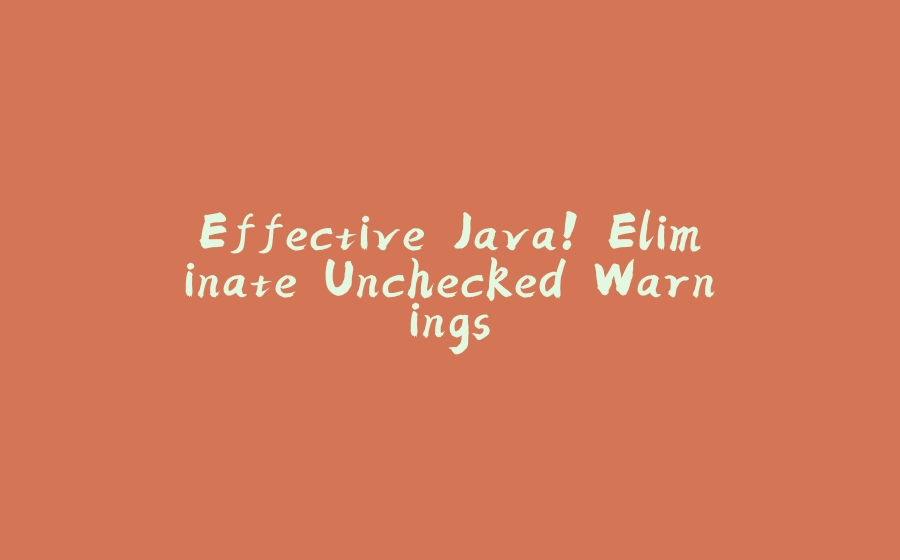


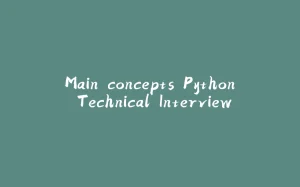
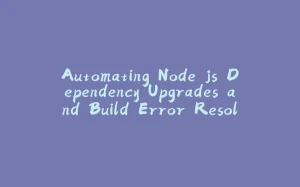











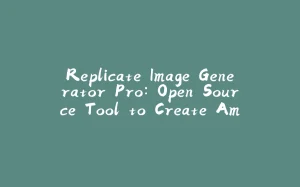
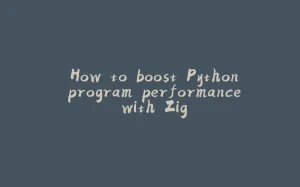

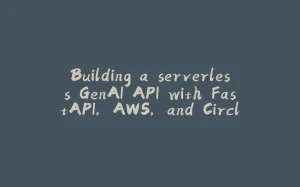





暂无评论内容